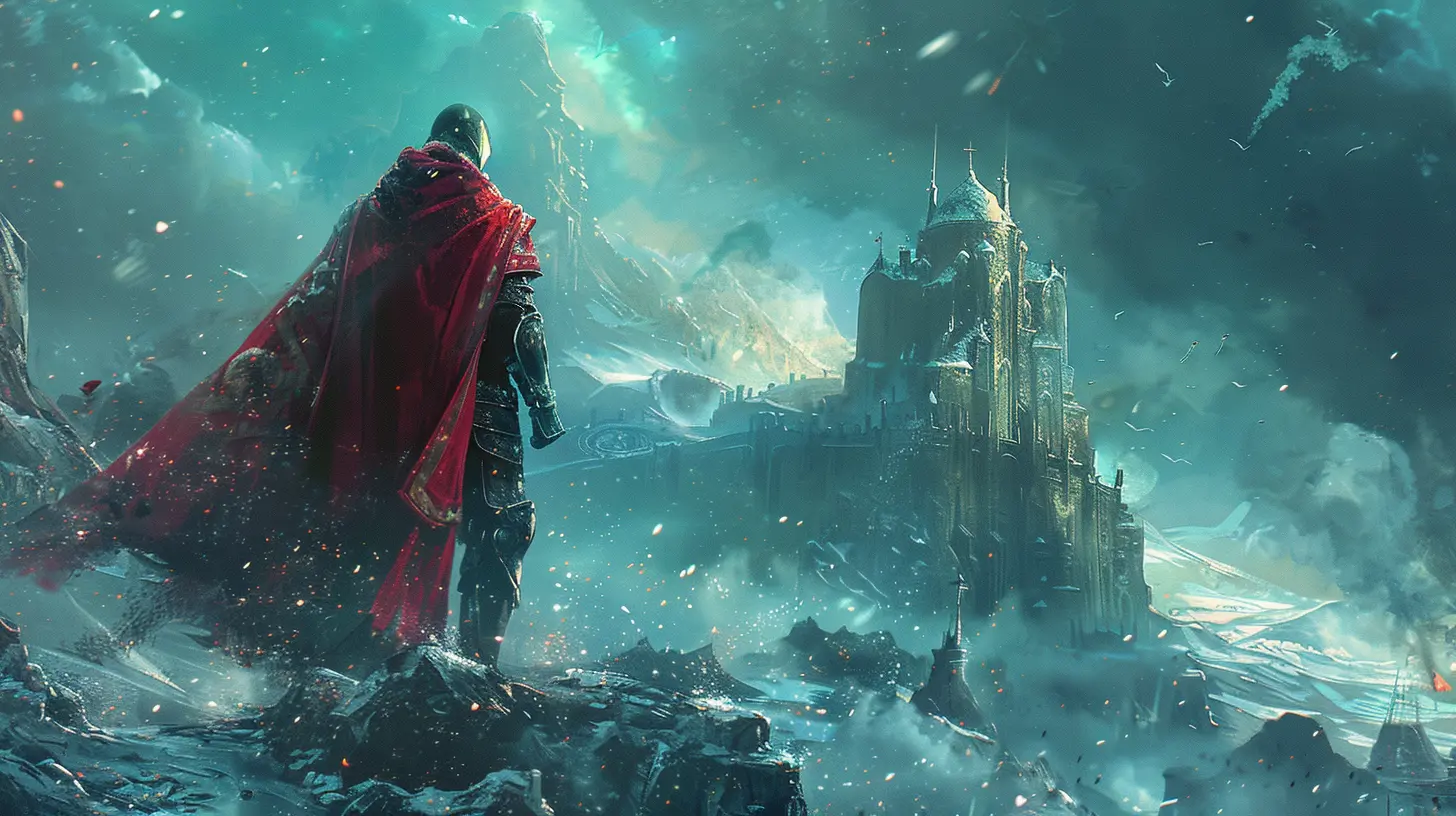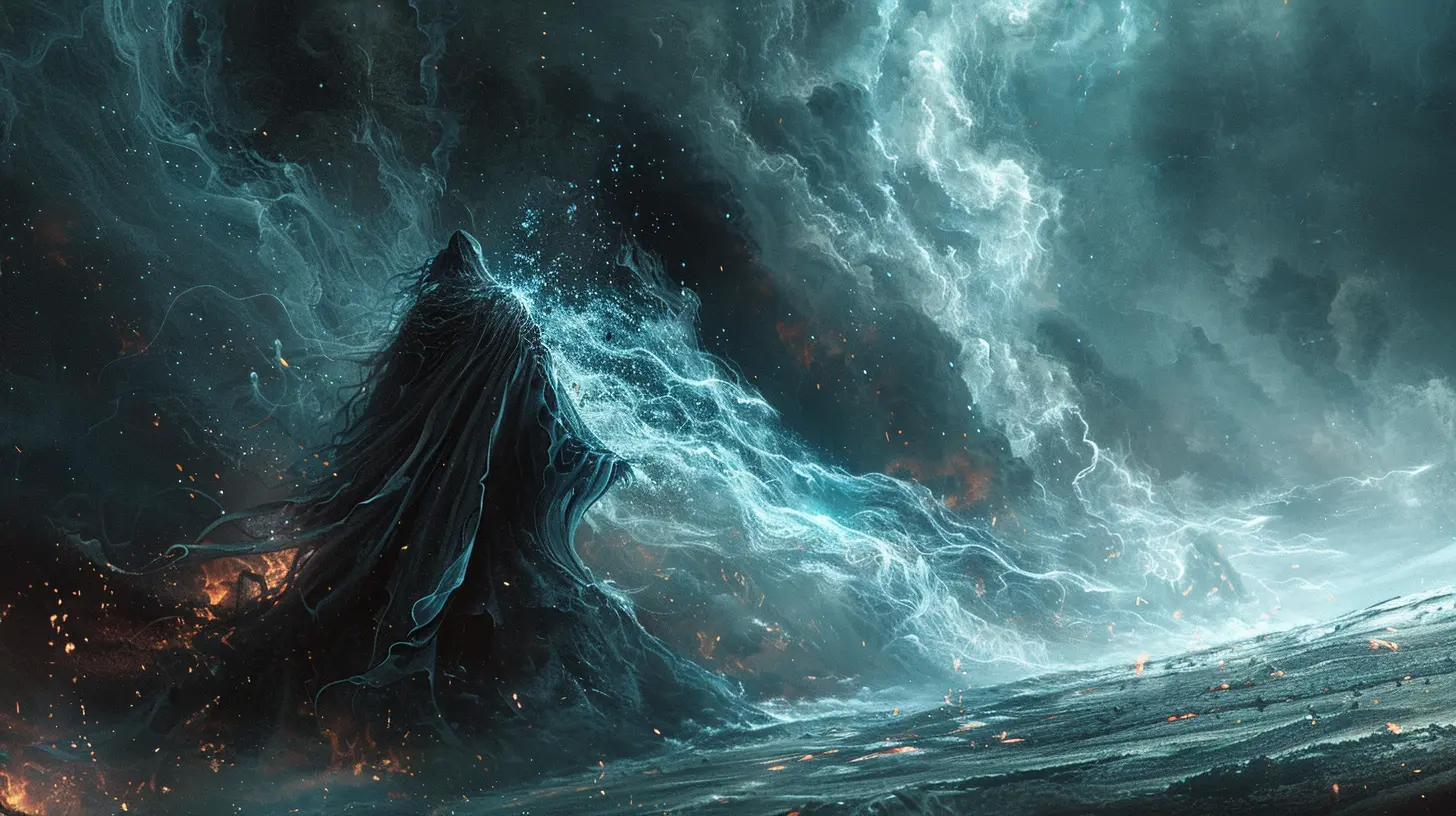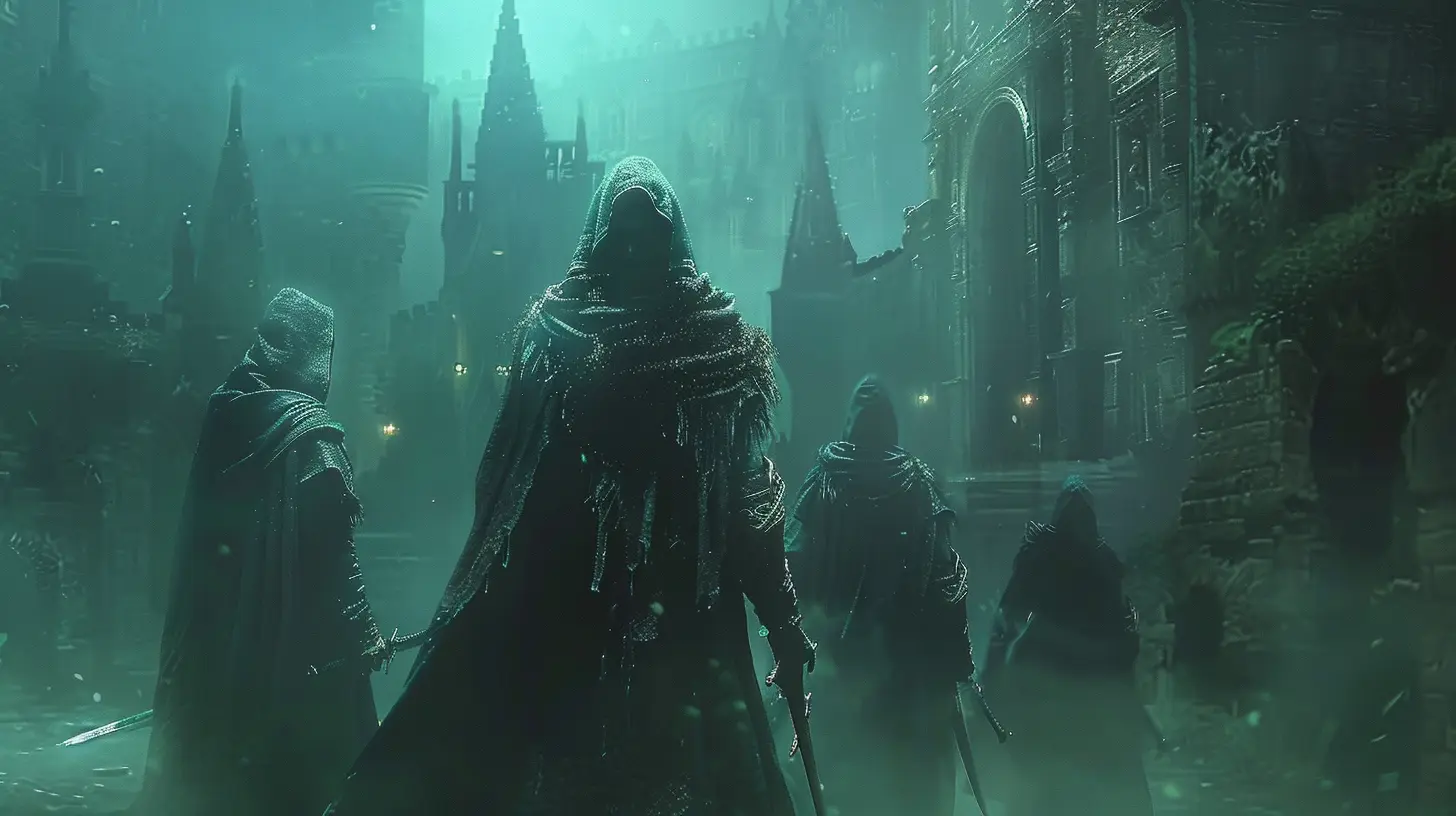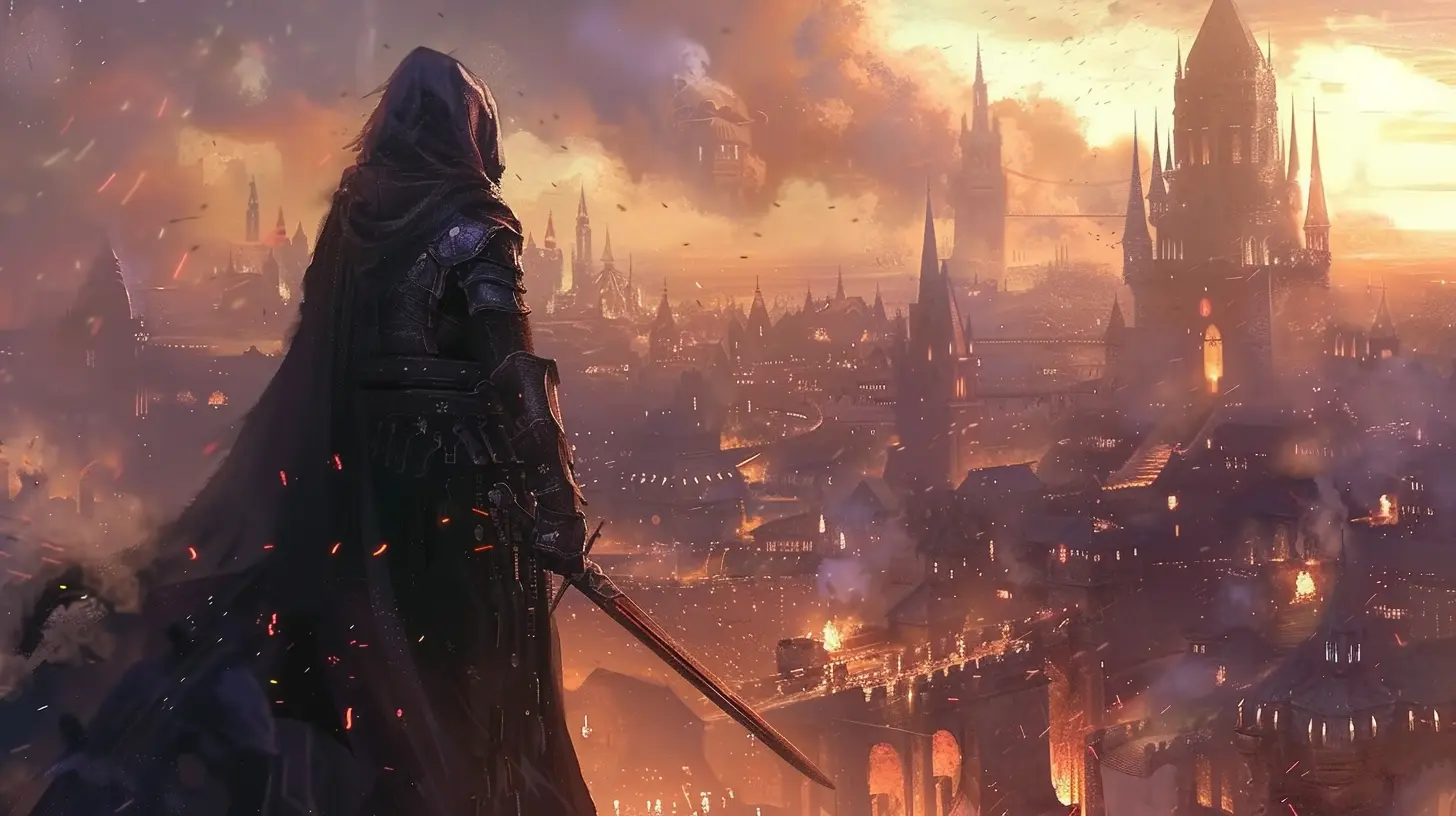Fighting Fate: Exploring Themes of Destiny in Fantasy RPGs
15 October 2025
Fate. Destiny. The grand design. Call it whatever you like; it’s a theme that fantasy RPGs just can’t seem to shake off. And honestly, that’s not a bad thing. These games thrive on the tension between free will and predestined outcomes, dragging players into epic narratives that challenge our beliefs about control, purpose, and whether we’re truly the masters of our own fate. Whether you’re rolling dice in tabletop adventures or pressing X to swing your sword in a digital world, the concept of fighting fate is everywhere in the genre. So, pull up your inventory screen and let’s dive deep into why this theme is so captivating and how it shapes some of the most iconic fantasy RPGs out there.
Why Is Destiny Such a Big Deal in Fantasy RPGs?
Think about it—fantasy RPGs are all about storytelling. Sure, the loot, combat mechanics, and leveling up are fun, but if the story doesn’t hook you, it’s game over. And what’s a better narrative device than destiny? It’s dramatic, it’s philosophical, and it forces the heroes (a.k.a you, the player) to wrestle with some big questions. Are you a pawn in someone else’s game? Can you rewrite the stars? Destiny in fantasy RPGs isn’t just a plot device—it’s a mirror reflecting our own struggles with control and purpose in the real world.Destiny gives RPGs their stakes. If you’re the “Chosen One,” the fate of the world is probably hanging by a thread, and spoiler alert: you’re the scissors. It’s the weight of destiny that makes every decision feel monumental. Without it, you’re just a glorified treasure hunter hacking through monsters for gold coins.
The Chosen One Trope: Cliché or Classic?
Let’s get real: the “Chosen One” trope is everywhere. You know the deal—you’re a farmhand or a nobody, and then, wham! A prophecy, an ancient artifact, or a mysterious stranger declares you’re destined to save the world. It’s a classic recipe, sure, but like pizza, it never really gets old. The real magic of the trope comes from how each game spins it.Take The Elder Scrolls V: Skyrim. You’re the Dragonborn, fated to bring down Alduin, the World-Eater. Sounds pretty straightforward, right? But along the way, the game gives you so much freedom that you can practically ignore your destiny. You can join guilds, buy a house, or even spend hours chasing butterflies. It’s almost like Skyrim is asking, “What happens when the chosen one avoids their calling?” That tension between destiny and choice is what makes it compelling.
Similarly, in The Legend of Zelda: Breath of the Wild, you’re Link, the knight fated to save Hyrule from Calamity Ganon. But what makes this iteration of the franchise interesting is how it portrays destiny as something you have to live up to. You’ve already failed once (hello, shattered Kingdom), and reclaiming your place as the world’s savior feels more like a second chance than a foregone conclusion.
The Rebel vs. Fate: When Heroes Push Back
Not every RPG hero is super chill with their destiny. Some of the most memorable characters actively resist their fate, and honestly? We love to see it. There’s something incredibly human about fighting against something bigger than yourself, even when the odds are stacked against you.Take Final Fantasy X. Tidus spends a good chunk of the game railing against the very idea of fate. He’s dragged into Spira, a world he doesn’t belong to, and finds out he’s part of a plan he didn’t sign up for. And let’s not forget Chrono Trigger. (Can we all agree this game is legendary?) Here, the concept of fate is practically thrown out the window as the party literally travels through time to change the future. These stories hit hard because they’re about hope and determination—traits we all like to think we’d have if faced with impossible odds.
Sometimes, resisting fate isn’t just about shouting, “Nope, not today!” It’s quieter, more personal. In Dragon Age: Inquisition, the protagonist (the Inquisitor) is hailed as the herald of Andraste, practically deified by some of their followers. But the game lets you question it. Are you really divine, or are people just projecting their hopes onto you? It’s not about smashing fate with a sword—it’s about wrestling with what it means to be chosen and navigating the weight of expectations.
When Fate Is the Villain
Now, here’s a twist. What happens when fate itself is the big bad? Fantasy RPGs love to anthropomorphize destiny into actual villains, and wow, does it make for some dramatic storylines. Suddenly, destiny isn’t just a concept—it’s something you can fight, and that’s kind of mind-blowing.Enter Final Fantasy XIII. The whole premise revolves around l’Cie, individuals branded by godlike beings called Fal’Cie, and given a “Focus” (basically, a divine to-do list). If they fail, they turn into monsters. If they succeed, they turn into crystal. Yeah, talk about a no-win situation. The characters spend the entire game resisting their fate, challenging the idea that their lives are predetermined by higher powers.
Another example? Persona 3. The “fate” here takes the form of death itself, and the game isn’t shy about confronting heavy existential questions. You and your team are battling against time—not just to save the world, but to cherish the life you have before it’s gone. It’s deep, it’s heart-wrenching, and it turns the theme of destiny into something profoundly personal.
Free Will vs. Predestination: What These Games Teach Us
Fantasy RPGs don’t just toss around the theme of fate for kicks; they’re diving into a debate that’s been raging for centuries. Are our lives predestined, or do we have a say in what happens? And while philosophers and theologians might spend lifetimes debating this, RPGs simplify the argument into something you can wield—a sword, a staff, maybe even a talking sword.What’s fascinating is how these games often blur the lines. Even in the most linear RPGs, where destiny seems inescapable, there are moments where your choices matter. Maybe you can’t change the ending, but how you get there? That’s often up to you.
Games like Mass Effect and The Witcher 3 are excellent at this. Sure, there’s an overarching narrative you can’t escape, but your decisions shape how the journey unfolds. Did you save the villagers in White Orchard, or did you let their story end in tragedy? Destiny might be calling the shots on the big stuff, but the details? That’s where you come in.
Why We’re So Obsessed with Fighting Fate
Let’s face it—the idea of fighting fate speaks to something primal in all of us. We all want to believe we have control over our lives, even when the universe throws curveballs our way. Playing an RPG where you face (and maybe even conquer) destiny lets us live out that fantasy. It’s cathartic. It’s empowering. And sometimes, it’s downright humbling.These games remind us that even if life feels like it’s on rails, there’s always room to make choices—no matter how small. Maybe that’s why we keep coming back to these stories. They’re not just about saving kingdoms or slaying dragons; they’re teaching us to grapple with life’s big questions. And honestly? That’s pretty epic.
Final Thoughts
Fantasy RPGs don’t just give us swords and sorcery—they give us stories that stick with us long after we’ve put the controller down or rolled the final die. The theme of destiny is more than just a narrative hook; it’s an exploration of what it means to be human. Whether we’re embracing our roles as chosen heroes, rebelling against a predestined path, or duking it out with the gods themselves, these games let us wrestle with fate in ways that are thrilling, thought-provoking, and occasionally heartbreaking.So, the next time you’re tasked with saving the world, take a moment to think about the fate you’re fighting against, and ask yourself: what does it mean to be the hero of your own story? Who knows—maybe your choices matter more than you think.
all images in this post were generated using AI tools
Category:
Fantasy RpgsAuthor:

Whitman Adams
Discussion
rate this article
1 comments
Paula Gates
Embrace your journey, forge destiny!
October 15, 2025 at 2:49 PM

Whitman Adams
Thank you! Embracing our journeys is essential in shaping our own destinies, especially in the rich narratives of fantasy RPGs.


